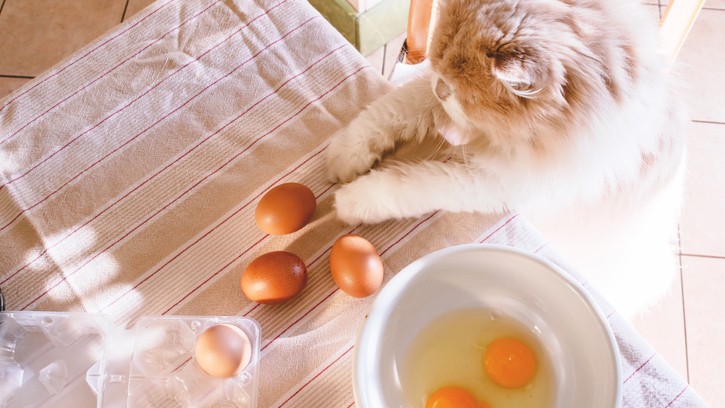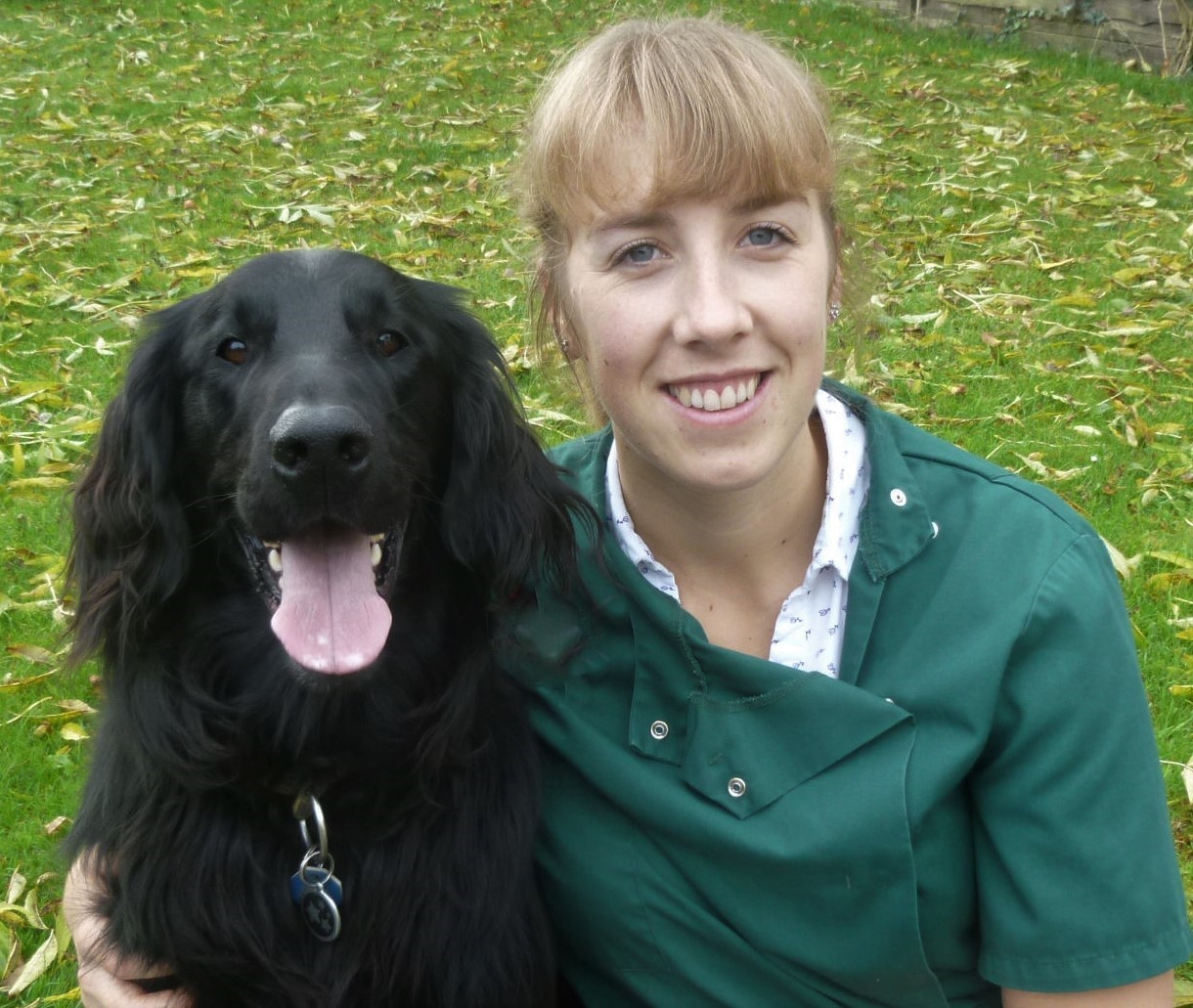Can cats eat eggs?
Can cats eat eggs? Read our vet’s article to see if they are safe for your cat to enjoy

Get the best advice, tips and top tech for your beloved Pets
You are now subscribed
Your newsletter sign-up was successful
We know that they enjoy meat, but can cats eat eggs? The short answer is, yes they can! Cooked eggs are safe for cats, unlike the foodstuffs in 8 human foods that are poisonous to cats.
Cats in the wild will eat eggs found in nests for extra protein and calories. Domestic cats however are usually fed on the best cat food, which should provide them with all of the nutrients they need. But many pet parents like to give their cat an additional treat now and then (check out our Are Cat Treats Healthy? page). In this article, we will look at eggs in more detail as well as how you can safely give them to your cats.
- Can cats eat cheese?
- Can cats eat dog treats? A vet's guide to whether dog treats are bad for cats
- Can cats eat dog food? A vet's guide to whether dog food is bad for cats
- Can dogs eat eggs? We crack the case!
Are eggs good for cats?
Cats are obligate carnivores and require animal protein sources to get the amino acids that they need, for general good health as well as muscle growth and repair. Eggs can be a good way of getting some of these nutrients. In the wild, cats are hunters and will sometimes eat birds from their nests, where they will also find eggs. For a hungry wild cat, these eggs can provide some much-needed extra calories and protein.
As well as protein and essential amino acids, eggs will also provide the following nutrients to your cat (mainly via the yolk) –
- Vitamins A, D, E, B1 (Thiamin), B2 (Riboflavin), B6, B9 (Folate), B12
- Choline
- Calcium
- Iron
- Phosphorus
- Zinc
- Selenium
If you want to give your cat egg you should give it sparingly as an occasional treat. It’s quite easy to accidentally overfeed a cat, which will lead to weight gain. Bear in mind that our pet cats don’t usually need any extras as they are well fed on complete commercial pet foods that contain everything they need.
- Why is my cat losing weight? Common causes of weight loss in cats
- What are the benefits of raw cat food?
- A vet's guide to healthy weight loss for cats
When are eggs bad for cats?
Whilst eggs are not toxic to cats they should only be fed in moderation, as an occasional treat. An egg contains around 90 calories, and some moderately active cats may only require around 150-200 calories a day. So, it’s easy to see how feeding too much egg could lead to them piling on the pounds. Cats that are overweight are more prone to other health conditions such as diabetes and osteoarthritis.
Eggs can also be risky if fed raw. Uncooked eggs can contain a bacteria called salmonella, which could make your cat quite poorly. Raw egg whites also contain a protein called avidin which binds to vitamin B7 (biotin) preventing your cat from being able to absorb it. Over time this could lead to a deficiency in this vitamin. Take away the risks by cooking your eggs before offering them to your pet
Get the best advice, tips and top tech for your beloved Pets
Tips on feeding your cat eggs
If your cat is getting bored of the healthiest cat treats then eggs can make a good substitute if offered in small amounts. There’s plenty of recipes for DIY cat treats, but if you want to keep it simple and try your cat with some egg then here’s how.
Hard boiling your egg is the easiest way to feed it to your cat. Cook the egg in a pan of boiling water for 7-10 minutes and then allow it to cool. Peel the shell off and offer bite-sized pieces of egg to your cat. Alternatively, you can cut it into very small pieces to mix in with their normal commercial cat food.
It is also possible to feed your cat eggshells so that they can benefit from the extra calcium that these contain. Grind the shells up into tiny pieces using a food blender and sprinkle them over your cat’s normal food in small amounts.
You should avoid serving your cat eggs that have been cooked with fat, butter, or other dairy products, as this will add even more calories and possibly cause digestive upset. Also, never force your pet to eat eggs – not all cats like them!
Cats can safely eat eggs, as long as they have been cooked. However, too many could cause your pet to gain weight. Most cats will get all the nutrients they need from their complete commercial cat food, but a little piece of egg now and then is fine to give as a treat!
Read now: Can cats eat strawberries or soup for cats
Rebecca is a veterinary surgeon who graduated from the Royal Veterinary College in London in 2009. She enjoys medicine in particular and she is proud to have achieved a BSAVA postgraduate certificate in small animal medicine (with commendation) from Nottingham Trent University in 2021.
She has a wealth of experience in first opinion small animal practice, having done a mixture of day-to-day routine work, on-call emergency duties and managerial roles since 2009.
She writes on various feline and canine topics for the Veterinary Content Company and a freelance basis, including behavior, nutrition, and health. Outside of work and writing she enjoys walking her own dog, spending time with her young family and baking!

